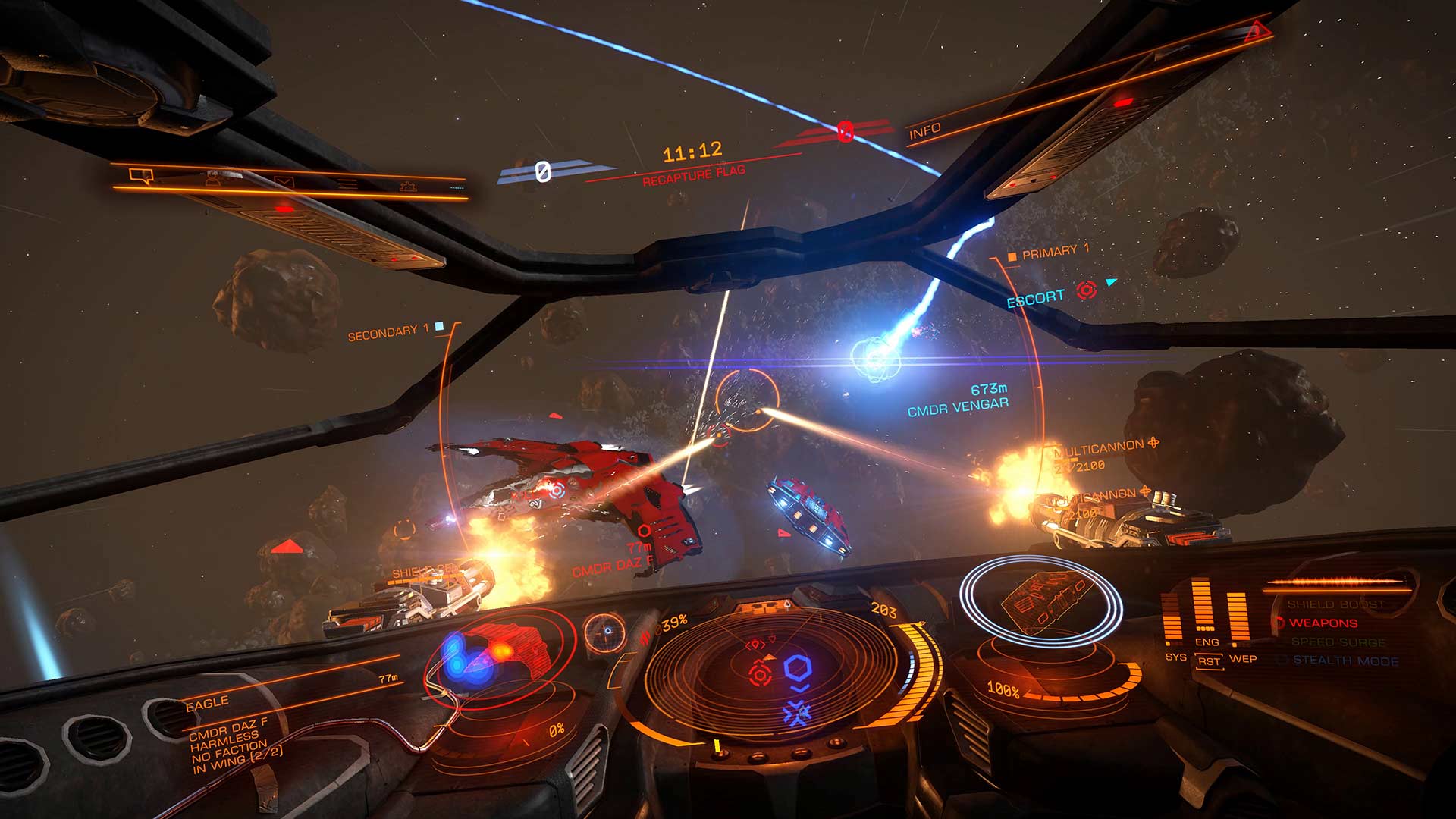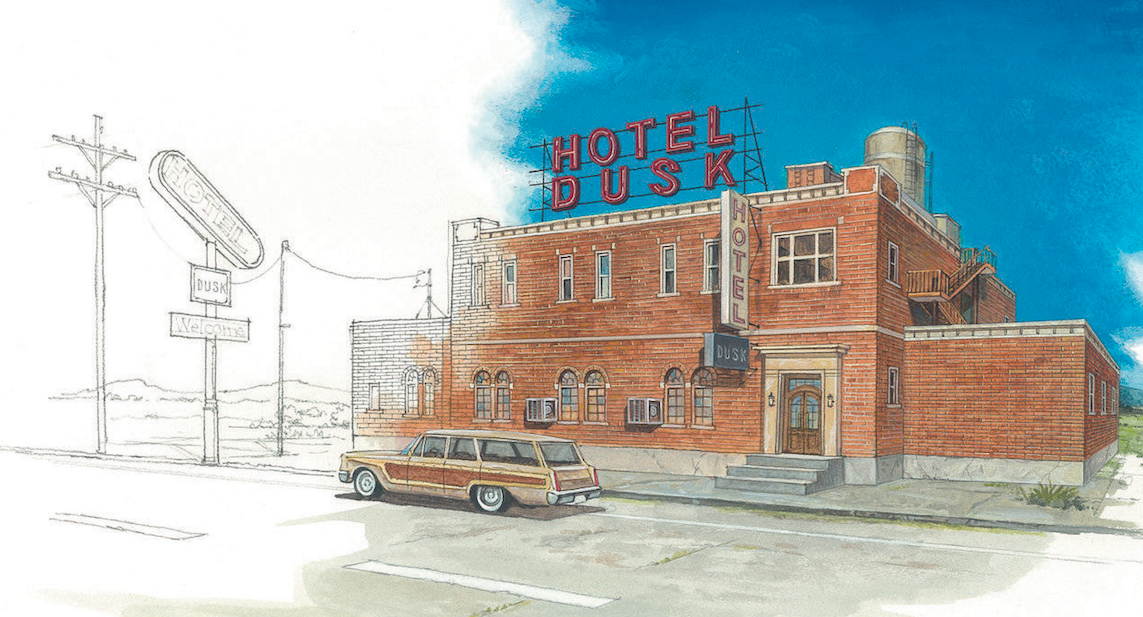 Habitat is coming back, and we need your help to get it running again. Calling all developers. ...
Habitat is coming back, and we need your help to get it running again. Calling all developers. ...
Taylor Swift
Shared posts
Weekday Escape N°133
David Axelrod has died aged 83
Taylor Swift:(

The American composer and producer, sampled by DJ Shadow, J Dilla, Madlib and many more, has died
Born in 1933 in Los Angeles, David Axelrod was an American drummer, producer and composer. He started his musical career in the latter part of the 1950s, producing albums such as jazz musician Harold Land's The Fox. In 1963 he joined Capitol Records working as producer and A&R and in 1968 wrote Mass in F Minor and Release Of An Oath for The Electric Prunes. Around that time, Axelrod started producing solo works, and his first two releases Song Of Innocence (1968) and Songs Of Experience (1969) formed a two-part homage to William Blake. Musician and Wire contributor Kirk Degiorgio, writing in his Hall Of Fame list of his most influential records, described his work as “sparse and moody – heavily reverberated strings mysteriously come and go – and the funky, fatback drumming gives it impetus. Axelrod is one of those great artists who creates music that manages to defy any fixed genre – it straddles rock, classical, jazz and funk.”
As Degiorgio notes, Axelrod's late 60s work was sampled heavily in many hiphop tracks, including by J Dilla, DJ Shadow, Quasimoto, Mos Def and Lil Wayne, who sampled "Holy Thursday" in his track “Mr Carter”. Axelrod's original is below.
Fire Emblem Heroes FAQ: What You Need to Know
DYSTROPICANA (troyduguid, Merle Leufgen, Outlands Games, aaartgames)
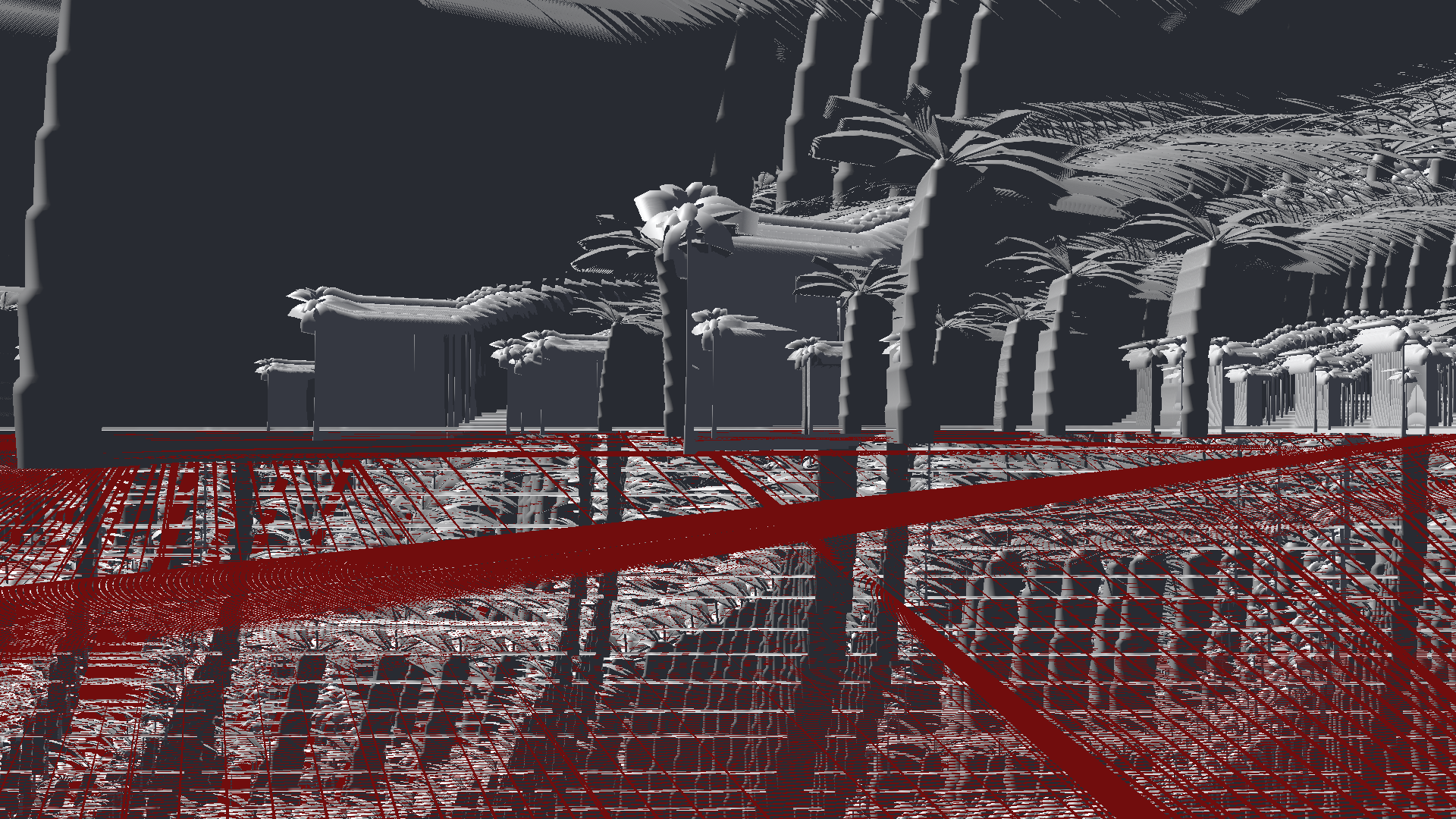
"dystropicana is a digital multimedia archipelago first conceptualized during a one day jam in the year 2k16." - Author's description
Download on itch.io (Windows)
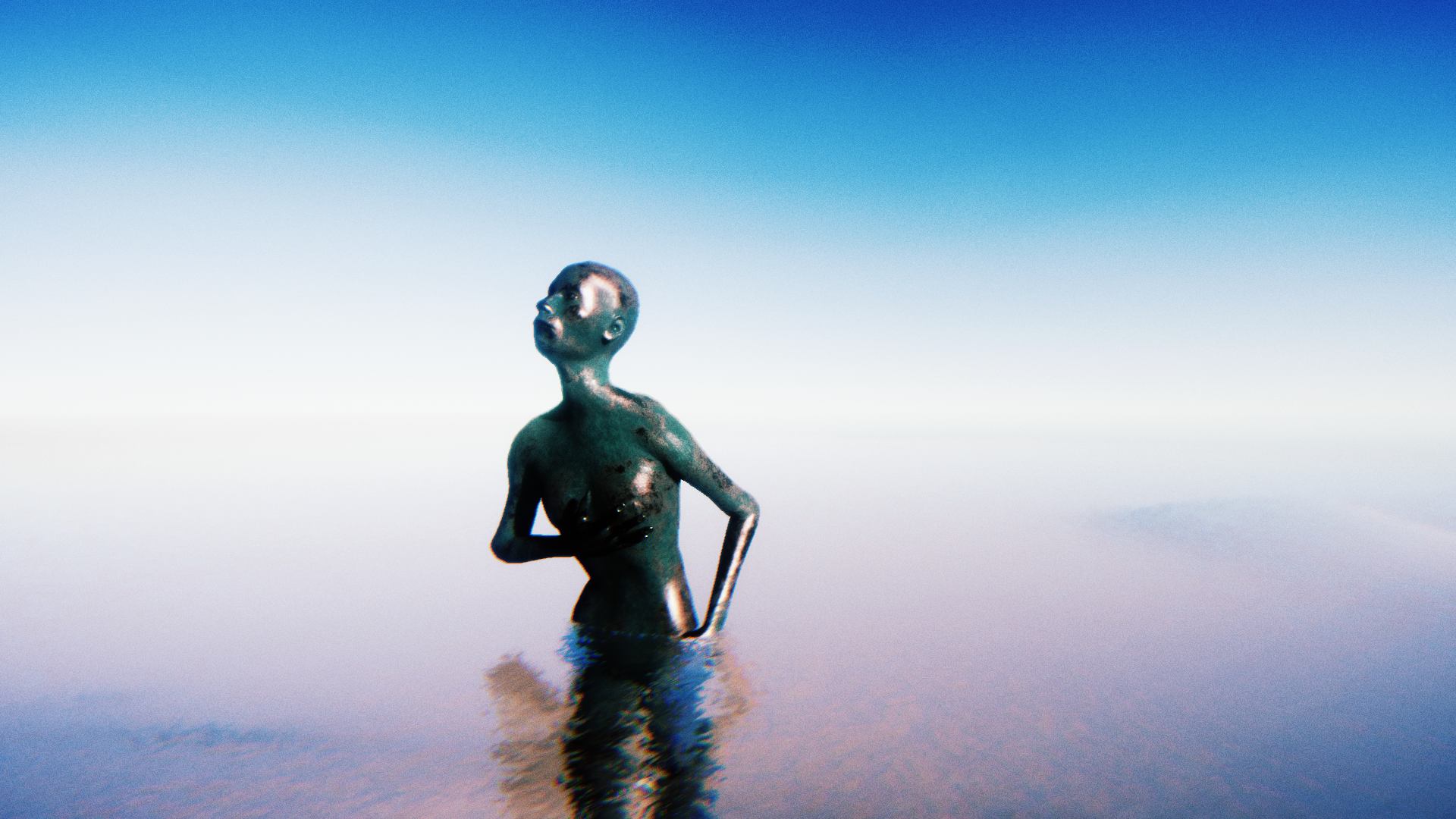
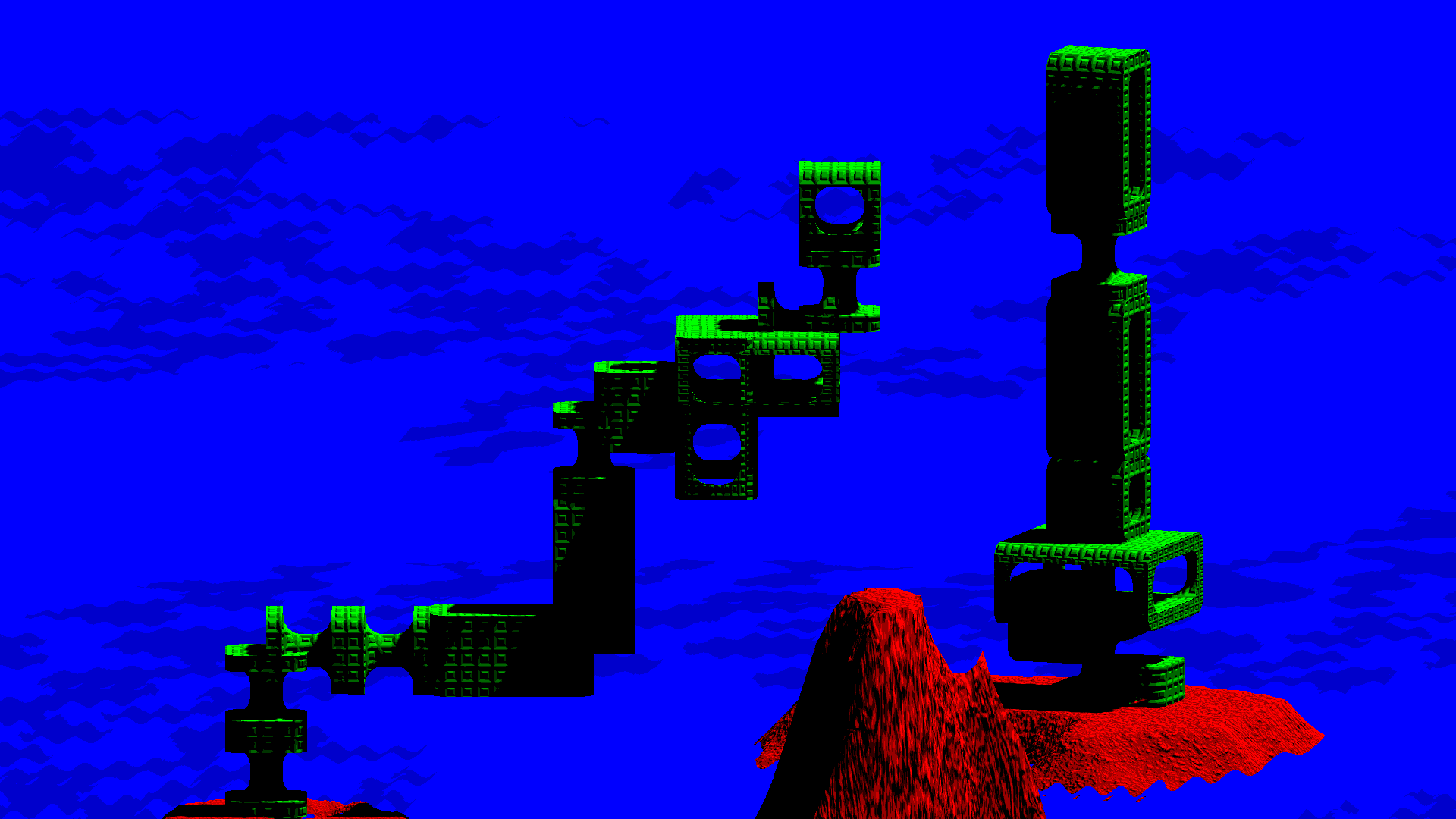
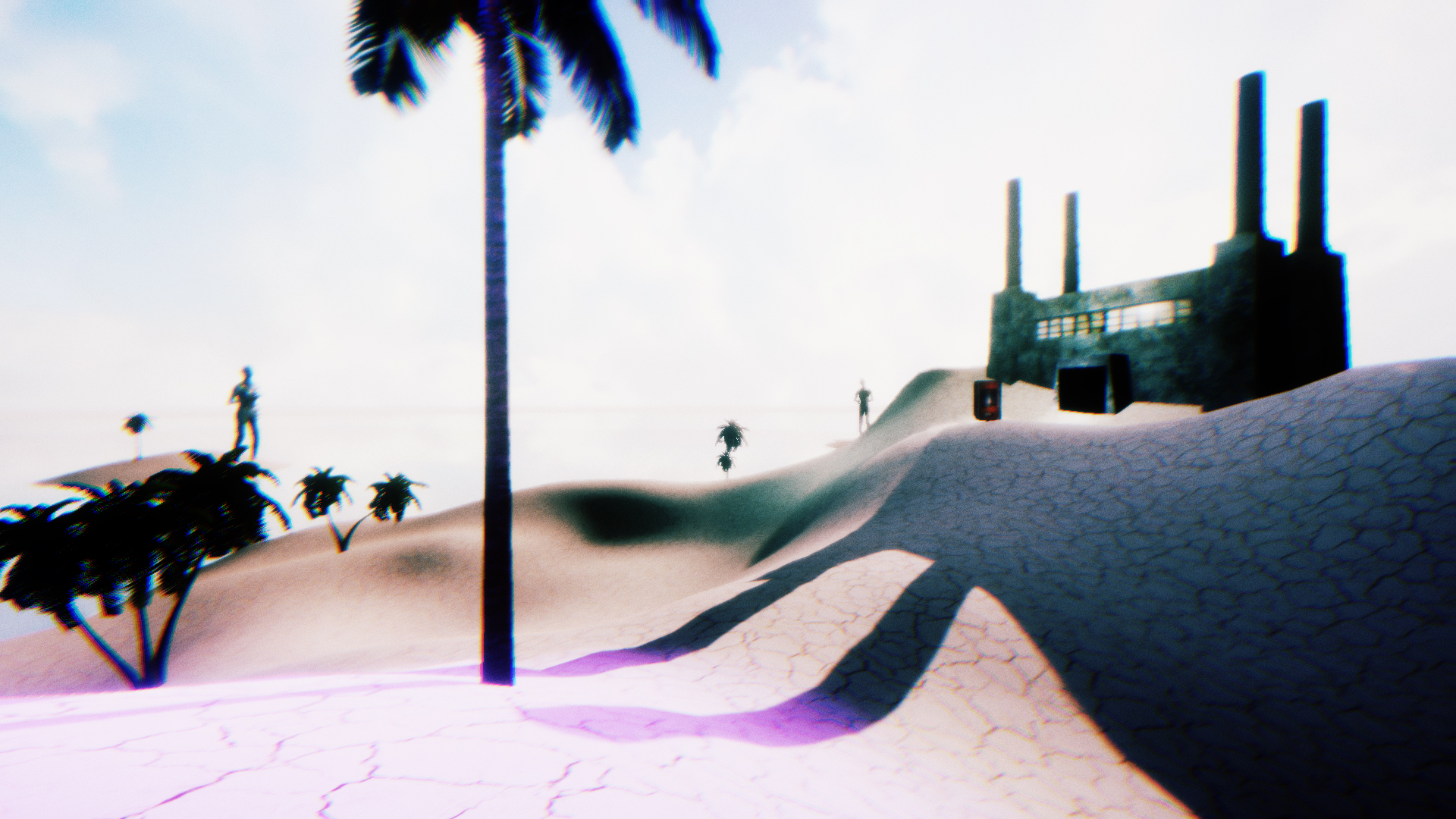
As 'Asheron's Call' Nears Death, One Designer Looks Back
Barring a last-minute miracle, the end of Asheron's Call is near. The fantasy RPG MMO, which has been running since November 1999, is scheduled to shut down later today. It will soon join the long list of online games that were eventually discontinued, even if, as if the case with Asheron's Call, fans were still playing.
To celebrate (and mourn), players are gathering with friends and fellow warriors, holding what many consider to be their "last" events in the world. I recently profiled a 74-year-old grandfather who's distraught over his favorite game disappearing. This video shows residents of one in-game city, Holtburg, gathering on the steps of the town hall to for a group photo.
"Enjoyed the meet up in the Holtburg Town Hall," wrote a player on Asheron's Call's Facebook page. "Probably the last time ever that will happen."
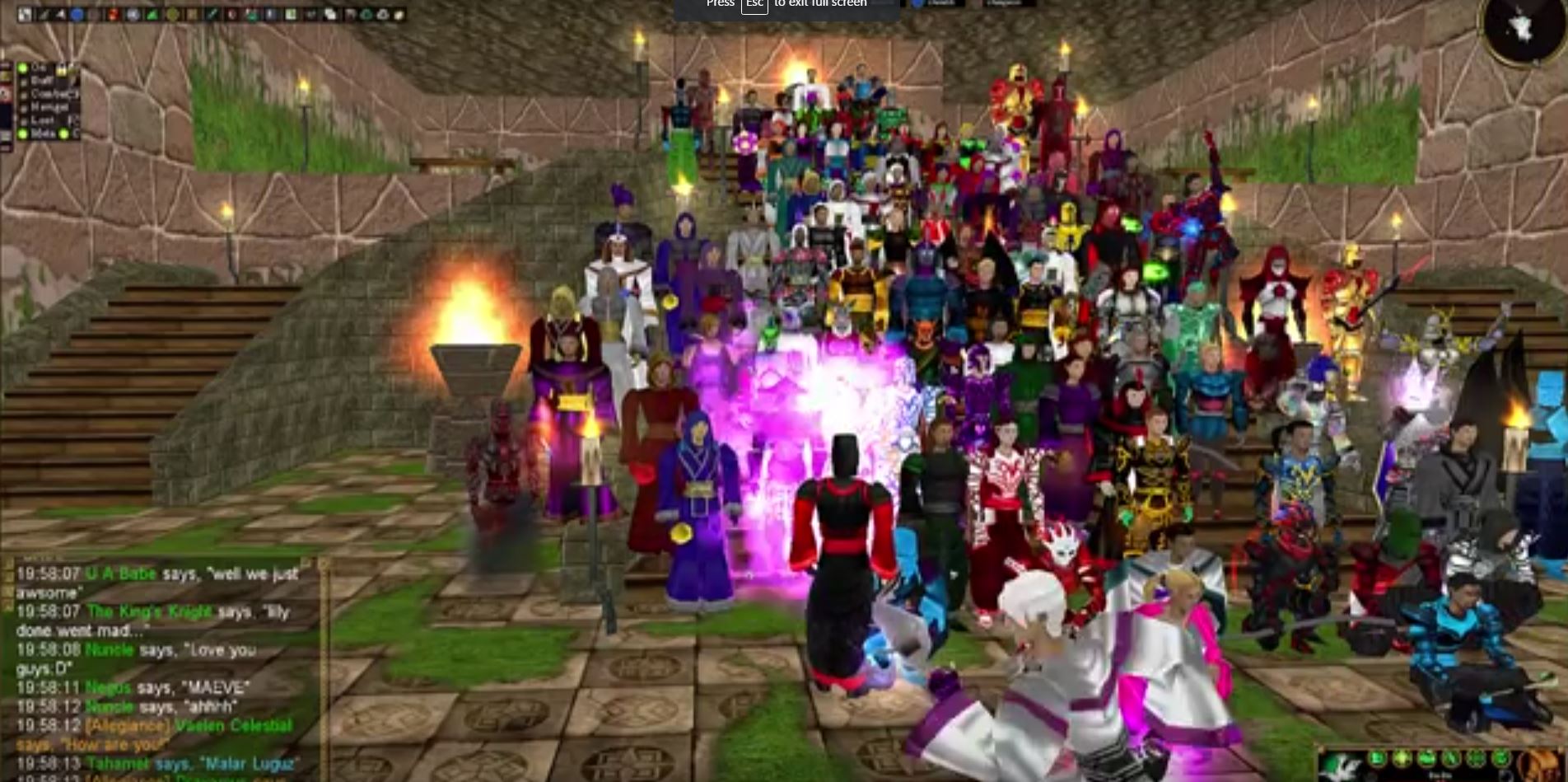
Image courtesy of Al Forte
Designer Jesse Kurlancheek was one of the people who helped build and maintain that world, working for Asheron's Call developer Turbine from 1999, the same year the game launched, until 2007. After falling in love with the game during its public beta, he managed to find his way onto the game's development team, even though Turbine wasn't really hiring anyone just yet.
I recently chatted with Kurlancheek about his experiences at Turbine, the game's friendly rivalry with EverQuest, what made Asheron's Call so special to so many people over the years, and what it feels like to have the game so unceremoniously shut down. (Unlike other MMOs, there aren't any game-ending events being put on by the developers. It'll just turn off.)
This interview has been lightly edited for clarity.
Waypoint: How'd you find your way to Turbine, and what was the state of Asheron's Call when you came on board? What did you make of the game?
Jesse Kurlancheek: I graduated college in '99 and instead of going to work for any of the big companies who recruited heavily in our CS department, I took what I called a "post-collegiate retirement". I lived off of the money I had earned during previous summer internships to basically do nothing but sit around and play games. Turbine started in Providence and drew heavily from the Brown University and Rhode Island School of Design student bodies, and my roommate interned there previously. He got me into the alpha and beta tests and, while I had no time for it during the school year, I fell heavily into Asheron's Call that summer.
We had a party one night, and my roommate had been bragging to his girlfriend who worked at Turbine about how much I played, how high level I was, and so on. She told me that I should apply with them if I wasn't doing much else. I was going to need a job soon anyway, and games sounded great.
When I went up to their offices, they hadn't really formalized their hiring process yet, and HR just took me around to various departments asking if they needed client engineers, server engineers, UI engineers, and so on. They all said no, and eventually we got to the design pit, and they said, "Sure! We could use a content designer!"
I loved the game and had "strong" opinions about the game during beta and I wasn't shy with about voicing them during the interviews. In retrospect, it's a small miracle they took a chance and hired me. I started a few months before the game went gold and launched into retail. Our initial job was preparing for the first monthly update, due to be released a few weeks after launch.
People forget how close the releases of EverQuest and Asheron's Call were, even though EverQuest gets all the historical platitudes. What did your team of think of EverQuest at the time?
Kurlancheek: There was a mix of camaraderie and competition. We were friends with a bunch of the EverQuest team and we were both pushing out into a relatively new frontier and making our mistakes very publicly. But we were the underdogs and some folks had chips on their shoulders about EverQuest and how it conquered the marketplace using "just" DIKU MUD mechanics and the classic fantasy tropes.
AC, for better or worse, took a great deal of pride in being a unique fantasy world with a very different set of mechanics and rules than what players might be used to. We pushed in very different directions from EverQuest and it didn't seem there was very much overlap in the playerbases. It was nice to have 3 very different choices at the time, between Ultima Online, EverQuest, and Asheron's Call, each offering a different experience, so we didn't have too much direct competition in the end.
Asheron's Call may not have been the world's most popular MMO, but it seemed to have an incredibly dedicated fanbase. Why do you think that was, and how did your team try to build around that?
Kurlancheek: I think this comes down to two things:
1) The monthly updates which added tons of content, drove a large story arc forward, and pushed out quality of life fixes and game improvements. This was as crazy then as it would be now.
With a relatively rough toolset, we were pushing out stuff every month, without fail, for the first few years of Asheron's Call's life. Some were bigger than others, but we nailed them month after month as part of our agreement with the players. If they were paying a subscription, shouldn't they be getting something more than just access to the servers? As far as I know, I don't think any other games have matched this pace of content updates, MMO or otherwise.
2) The allegiance system. In most games with guilds, the structure was flat. There was a guild leader, officers, and then everyone else. In Asheron's Call, we had the concept of a "patron" and "vassal" relationship, where newer players would "swear allegiance to" more experienced ones.
The patron would help the vassal with gear, advice, and so on, while the vassal would generate XP out of thin air that would be given to the patron. It was a simple symbiotic relationship that really helped on-board new players into the game. Players would hang out around the exit of the new player tutorial areas and ask for vassals.
Players could have up to twelve, I think, players sworn to them, but it didn't stop there. That patron could also be sworn to another person, and those vassals could have vassals of their own. Massive tree structures could be organized by players, but they never felt HUGE since you were at most connected to eleven other players on your level, up to twelve vassals, and the person at the top of the tree (the monarch). You could be in a massive allegiance, but it still felt like you were only in a slightly large family.
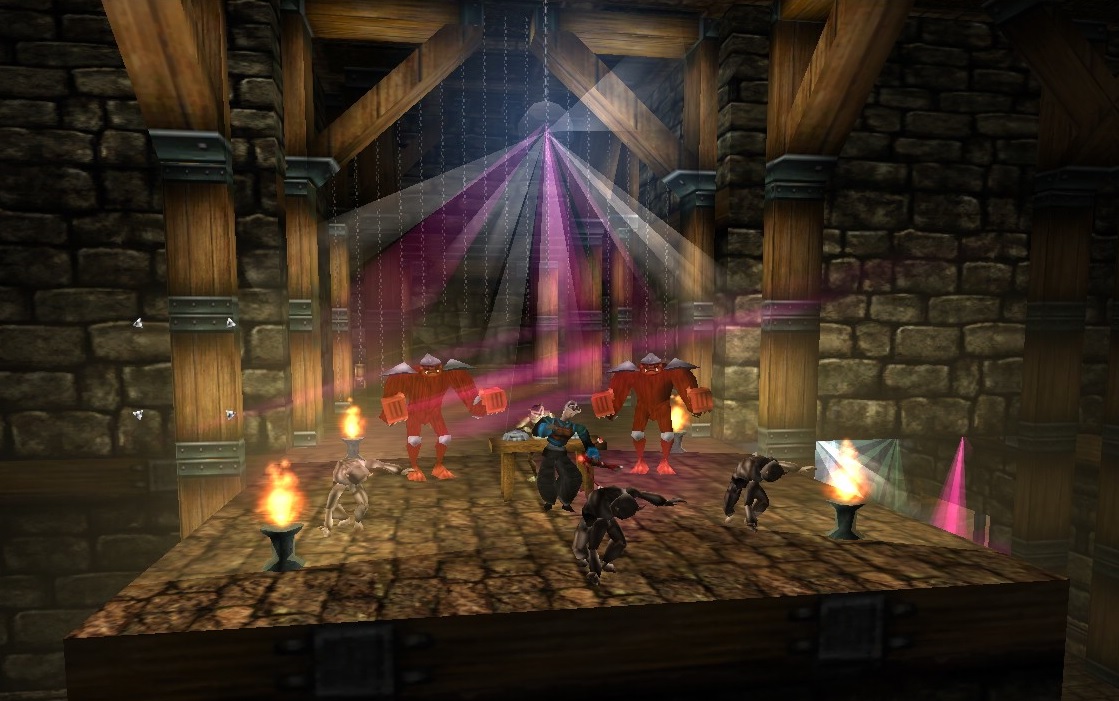
Images courtesy of Turbine
Finally, this tree structure gave individual players a large amount of power in the allegiance. In other games, if someone wasn't getting along in the guild, they could be removed and that'd be it, but in a large sprawling tree, removing a single person might send hundreds or thousand of players with them. To build in relationship structures and not just expect social systems to work on their own was just so strong.
Like every MMO, we'd get our share of letters telling us about marriages (and divorces, eesh) that took place because of the game. Kids would write and send in the cutest renditions of their characters, but there's one letter that still sticks with me and chokes me up: It was from someone who became quadriplegic in his teens or twenties. He told us that he was largely housebound and socializing had become hard for him.
In his letter, he described how he started playing Asheron's Call with a special controller and because the way combat toggles worked, he was able to fight and run around without too much trouble. He chatted with folks in game, found a patron, and eventually became a pretty big deal in his allegiance. He wanted to thank us for letting him get his social life back and allow him to feel like a hero. I still get choked up thinking about him.
It kills me to think about him and Julien [the 74-year-old grandfather] not being able to log in after tomorrow.
Talk a little bit about the culture at Turbine. How'd that change as time went on? They were riding the MMO wave when everybody was starting to make one.
Kurlancheek: This is hard to quantify. There was so much changing at the studio over the years I was there. We went from ~30 people to ~300 people (and then back down to 200). We went through three or four CEOs. Moved offices a few times.
I think the biggest change was the company had to grow up as a whole. We were all flying by the seat of our pants. Few people there had ever shipped a game before and certainly no one had shipped or supported an MMO, so mistakes were fast and furious. Our reactions to them weren't always the best either, and we certainly got away with some insane things.
For example, in an official MS-sponsored dev chat, I just went off the rails after the chat was over and talked to myself for an hour while 1,000 people watched. We chatted very candidly on message boards, email, and even had players calling our personal home phone numbers. If you told me that today, I'd tell you you were nuts. But back then, it seemed to make sense. We had players coming to our houses to party and staying on my couches.
Eventually, such shenanigans were frowned upon and reeled back. Developers either moved on to other projects, became burnt out and withdrew from the communities, or in some cases were told that they should maybe take it easy and use the community managers as a conduit to the players more. We stayed focused on the players though. I don't think we ever called them "users" or "customers", which we'd call them at some other places that I've worked. Some MMOs said the players were in the developer's world, but we always said it was the player's world and we were just keeping it running for them.
"There's one letter that still sticks with me and chokes me up: It was from someone who became quadriplegic in his teens or twenties. He told us that he was largely housebound and socializing had become hard for him. He wanted to thank us for letting him get his social life back and allow him to feel like a hero. I still get choked up thinking about him."
You had players staying on your couch?! How'd that happen?
There were yearly (I think?) player gatherings and one year, we had a large party at our house. Mostly developers, but a handful of players as well. As people tend to do, they drank with purpose and passed out with the quickness.
And I've stayed on a player's couch! A player organized a fairly large team walk for multiple sclerosis down in Lancaster, PA. A few devs and I all went down to support and walk, along with a bunch of semi-local players. And somewhere along the line, I fell asleep on his couch after the long drive.
At some point though, I stopped thinking of them as "players" and just as friends I met through the game/work who happen to play the game. On IRC, one of the players had moved to Germany to be with her boyfriend, and we became friends while she was bored during the day while he was at work. When they both moved back to Canada, she asked if she could stay with us during another player gathering to save on hotels. They invited me to their wedding a few years later too. :)
I wonder if we've lost a little bit of the closeness of communities in more recent times. I certainly can't fathom becoming that close with a player these days. Partially because I'm not sure I'd put myself out there as much as we inadvertently used to and partially because the whole tone of the communications feel like they've shifted to be much more business-like where we keep each other at arm's length.
What are some of your favorite stories from working on the game? Anything specific come to mind?
Kurlancheek: During the climax of our first big story arc, I'm running around the world as Bael'zharon (the big baddie of the game world at launch). I'm going from town to town with another designer, who's playing as Asheron (the eponymous good guy). We'd get into a town, recite some scripts, fight a little bit, and then off to the next town.
One time, I'm prepping outside of town and there's this low level player, just hunting stuff on his own. Bael'zharon was a huge balrog-looking thing, demon head, big black wings, etc. The player looks at me, does what amounts to a double take, and then runs over and starts punching at my feet. He couldn't hit me and I ask him what's he's doing. We talk for a bit and I explain what's happening, who I am, and I notice he's not wearing any pants.
I ask him to show some respect and put his pants on, and he respond with, "Not even for you, mighty Hopeslayer, will I use the mana in my pants." (When equipped, magic items would drain their mana over time and had to be recharged with somewhat costly items.)
There was high-level town in the west of the game world can Fort Tethana and to get there, it was a long and treacherous run. It was possible for players to make portals for other players and if Teth was your home base, you could make a portal there. It was a common refrain in towns to hear people calling out for "portal to teth?!"
During that Bael'zharon arc, I made a spell for him called "Portal to Teth". He could cast it to send a player right to Teth... 5,000 meters up in the sky, and they'd start to fall to their deaths. What started as a funny thing to use on people in combat became something they begged for whenever BZ showed up in a town. There was a pile of corpses in that spot in Teth for a while. I can only imagine what the players on the ground thought as the bodies hit the ground.
[There was also] the defense of the shard on Thistledown. [Editor's Note: This was an event where Turbine was trying to get players to destroy seven shards to unleash Bael'zharon, which would bring new loot into the world. But players could choose to attack or defend the crystal. Turbine tried to stack the deck, ensuring the crystals would all be destroyed, but on one server, Thistledown, players worked in shifts to defend the crystal for a week. The developers eventually bested them, but as tribute, an in-game shrine was created to memorialize the players involved .]
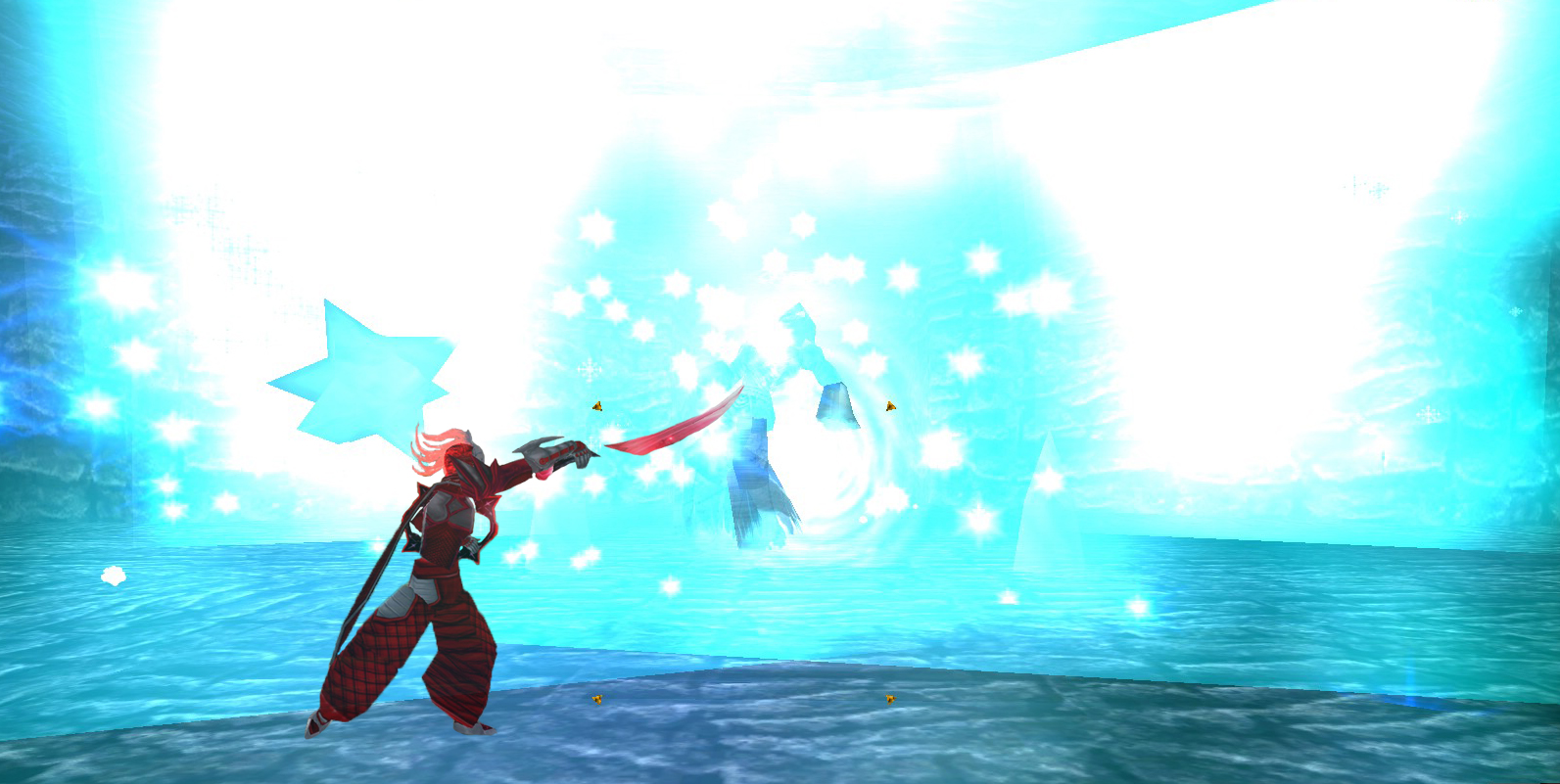
This still comes up if you talk to people now about Asheron's Call, a perfectly wonderful example of what could be accomplished in an MMO with the players and devs working together/against each other. The whole thing was so unexpected (that players wouldn't do something that gave them sweet loots?!) and Turbine/Microsoft allowed us mostly free reign to respond how we wanted. We were directly interacting with players and making them the heroes of their stories. Even though we had to move the server storyline along (we couldn't shard server data), we put up a monument to all of the defending players with their names.
I think generally my favorite times were hanging out with the players, either on the forums, in game, or at the player meetups.
This is a pretty broad question, so take it how you like: what happened with Asheron's Call 2? My limited understanding is that many Asheron's Call fans pushed back on the sequel, but I'm sure it's more complicated.
Kurlancheek: Certainly don't take this as gospel, since I was still pretty low on the totem pole and working on Asheron's Call during the initial phases of Asheron's Call 2, but from what I remember, there was a very real concern about cannibalizing the Asheron's Call players for a sequel. So it was decided that it would be a (very) different game that went in a (very) different direction from the original. We had an engaged, but small fanbase for Asheron's Call and I think there was the desire to get some of that EverQuest marketshare.
In retrospect doing a sequel to an MMO only a few years after it launched is pure craziness. Asheron's Call 2 left a lot of the good/unique parts of Asheron's Call and didn't pull them forwards to Asheron's Call 2, leading to a feeling of betrayal in the playerbase.
How do you feel about the game shutting down, and the way it was handled? Is there any reason why the server code shouldn't have just been handed over to fans, so things could continue?
Kurlancheek: Well, that's not leading at all. :)
It's sad, really. I always knew the game would go away one day. I haven't logged in for probably thirteen years now and when I see recent screenshots, I barely recognize it, but all the memories from back then are preserved in amber, just so. I like it that way and have resisted logging on to keep them how I remember them.
The game was quite literally responsible for the direction my life took, and friends that I've had for almost twenty years. It didn't deserve to go out with the flip of a switch. At the end of beta, we had a big event "celebrating" the end of the world. There were monsters and fire raining from the sky, giants attacking cities, and admins generally having fun with the players in the last days before it went retail. To my knowledge, there's nothing planned for the end of the game, it's just going away. Seventeen years of friendships and work and love. Poof.
There isn't any good reason to not turn the code and assets over to the community. Sure it'd be hard to get a server farm up and running with the appropriate software licenses and whatever strange proprietary tech may be needed, but the players are the owners of the world at this point, and to deny them their "home," for what I imagine are tangled legal reasons, breaks my heart.
Follow Patrick on Twitter. If you have a tip or a story idea, drop him an email here.
Final Fantasy XIV Inspires Japanese Drama, Daddy of Light
Landwaver (Rémi Bismuth)
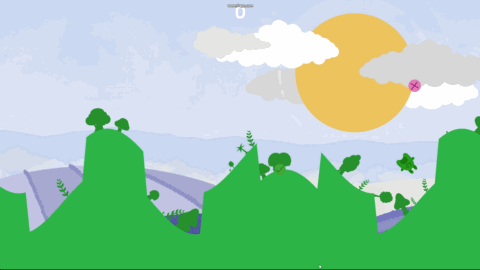
"1 2 3 4 > hold to edit oscillator
Z S > modify amplitude
Q/A D > modify frequency
O L > change shape
K M > shift phase" - Author's description
Download on itch.io (Windows)
Hanano Puzzle 2 (Qrostar)

"Hanano Puzzle 2 is a simple puzzle game by the creator of Jelly no Puzzle." - Author's description
Download on itch.io (Windows)
Your comment here
Learning from Our Elder Activists
Michelle Goldberg explores a topic I have thought a good bit about, as have others–that ACT-UP is an important model for us to learn about in resisting Trump and that the veterans of that movement, born out of complete desperation in the face of massive death and institutional indifference, will play a very important role in the next 4 years.
ACT UP, however, offers lessons for moving forward in the face of powerlessness, grief, and horror. When ACT UP formed in March 1987, the AIDS epidemic was six years old and had killed 40,000 people, yet President Ronald Reagan hadn’t given a single speech about it. That year the Senate, by a vote of 94–2, passed an amendment banning the Centers for Disease Control from funding AIDS programs that “promote, encourage or condone homosexual activities.” Introducing the amendment, North Carolina Sen. Jesse Helms said, “We have got to call a spade a spade, and a perverted human being a perverted human being.”
It wasn’t just the government that treated gay people with hostile indifference. In 1987, the pharmaceutical company Burroughs Wellcome announced plans to charge $10,000 a year for AZT, the first AIDS drug approved for commercial production. As David France reported in How to Survive a Plague: The Inside Story of How Citizens and Science Tamed AIDS, anti-gay hate crimes tripled between 1985 and 1988. People with AIDS and those who loved them were a despised, exploited minority almost completely without political representation.
Through ceaseless protest and political pressure, ACT UP played a major role in forcing a government and scientific response to the AIDS crisis. It chipped away at the stigma that enshrouded victims and pushed gay rights into the mainstream. “Back in 1981 when HIV hit, it hit a community that was isolated and marginalized and criminalized—homosexuality was illegal in most states in the country,” France tells me. “Those of us today who are feeling just as disenfranchised, the lesson is the courage we should get from what happened. Even from that far away from power, it’s possible to effect social change.”
ACT UP was able to change policy because it was relentless, and at once radical and highly pragmatic. It chose its targets carefully and stayed on them consistently. When Reagan finally formed a presidential commission on HIV, there was an ACT UP person in the room at every meeting. ACT UP activists were willing to be hated, as when they invaded St. Patrick’s Cathedral in New York to protest the Catholic church’s implacable opposition to condom use. But they were also eager students of power and engaged closely with the bureaucracies where life-and-death decisions were made. “Things that actually made change took a long time,” says Maxine Wolfe, another ACT UP veteran involved with the new group. She points to the effort to expand the CDC’s definition of AIDS, which before 1993 excluded many women and intravenous drug users. “Changing the CDC definition was a four-year campaign in which we used every possible strategy and tactic, from sitting in people’s offices to marching in the rain in Atlanta,” she says.
“The model of activism that ACT UP innovated is a model that they called inside-outside,” France says. “They had these armies of bodies that could show up at the drop of a phone call and stand outside these institutions that needed to be addressed, and they could do that with enough numbers, force, and clever timing that it forced somebody inside those institutions to pay attention. They also had an inside group of people who trained themselves in the science of AIDS and AIDS research. Once their comrades got those doors open, they moved through.” The group was never that big—France says its largest demonstrations drew around 3,000 people. “But they were tireless, those 3,000 people,” he says.
The two critical things to learn are that a) it is going to take some sort of model like this to fight Trump and b) small groups of committed activists can accomplish a lot. Given that more than half of voters voted for Hillary Clinton, to say the least Donald Trump’s values are not the values of most Americans. Brave leaders motivating dispirited people on the left is so, so important.
Report: Internet-breaking DDoS worm traced to chief of Minecraft-focused DDoS guard firm
Zip—Zap (Philipp Stollenmayer)

"Touch to contract.
Release to let go.
Bring the clumsy mechanical beings home." - Author's description
Purchase for $1.99 on the App Store (iOS)
Have a Chat With Dying Gods in ‘Forgotten’
Forgotten, by Arielle Grimes and Sophia Park, is an intriguing, mysterious piece of fictional digital archeology. Set inside an old, corrupted video game called Forgotten Blade, it offers you the chance to talk with a number of mythical beasts that know their time is up. Death—the corrupted code—is coming for them all.
Forgotten is just abstract enough that it hints at its story more than outright tells you what is going on, but there's a sadness and even profundity to the writing. It's sad in the same way that so many of the beasts and monsters in the Dark Souls games are sad—they are relics of a forgotten world, left to decay in a darkening space.
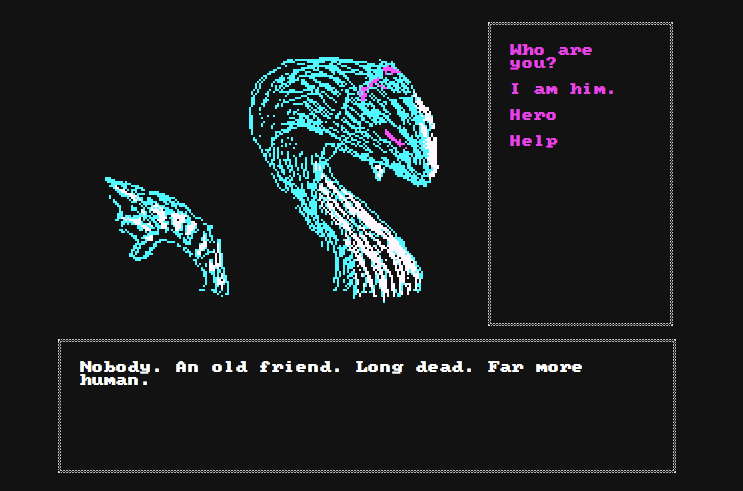
Header and all Forgotten screens courtesy of Sophia Park and Arielle Grimes
It feels like reading the mythology of a culture you're unfamiliar with—there is a time and place being explored here, but it's far enough removed from everyday experience to render it opaque. And like all good mythology, it pulls you right into its world, its stumbling attempts to explain the inexplicable universe we all find ourselves in.
You can play Forgotten for free on itch.io, and support the game on the same page.
'Elite: Dangerous' Is Headed for a Galactic Arms Race
Late last week, players of multiplayer space sim Elite Dangerous were blindsided by the sudden appearance of several alien ships. Prior to this point, the enormous galaxy had been entirely human—mining stations, outposts, captains with names like "Kate" and "Paulo" and "Michiko."
But far out in unsettled space, pilots dropped jarringly out of hyperspace lanes, their instrument panels flickered and died, and something vast passed overhead. Their ships were scanned, and the alien craft moved away as quickly as it had arrived.
Elite's galaxy, filled with hundreds of major and minor political factions, was instantly thrown into disarray. While official comments from the game's major fictional players haven't come through yet, the overall impression is that everybody, regardless of political orientation, is panicking. The Elite series has a history with aliens, you see. Previous games have featured the hyper-militaristic, super-advanced Thargoid race, who have had an extremely chequered history with the human race. Nobody has gone as far as attributing these new encounters to the Thargoids, perhaps out of denial.
Today, though, Frontier Developments, the game's designers, released the first patch since the alien encounters. While they are gleefully circumspect about last week's events—the word "alien" never appears in the 3,000 word update—some of the changes listed present disconcerting implications about what might be to come.
Five ships have had their hull strength doubled: The Hauler, the Type 6, the Keelback, the Type 7 and the Type 9 Heavy. These ships form the backbone of Elite's trading economy, carrying tons upon tons of various goods across human occupied space. They trade everything from luxury paté to medical supplies, and aren't usually so heavily armored. This sudden jump in their defense capabilities is, perhaps, a preparatory measure by Frontier. It is in their best interests, of course, to keep trading routes running in the face of danger. Wars, after all, are profitable.
Eleven attack ships have also seen major changes: Each have received between one and three additional weapons slots. This is more than a simple buff; it allows these craft to equip a whole new weapon. The Federal Gunship, a reliable combat support unit, can now equip three more of the game's largest "Size 4" weapon classes.
Viper class ships, Elite's standard dogfighting ship type, have all received an improvement to their chassis weight, allowing them substantially increased maneuverability.
While the exact nature, or intentions, of the aliens have yet to be made clear, today's patch notes make something troublingly clear. On distant stations, in lunar bases, Kate and Paulo and Michiko receive the news.
The human systems' trading craft, their dedicated fighter ships—they are being fitted for war.
Elite Dangerous 2.2.03 is live now on PC and Xbox One. You can read the full patch notes here.
'Hidden my game by mom! 2' is a Real Game You Should Play ASAP
For a year that's looking especially grim, we could all use a good laugh (or ten). For that, you should look no further than a bizarre iPhone game called Hidden my game by mom! 2. That's the real name of the game—I swear I'm not making it up! And though the name might be the result of some Japanese crudely translated into English, the game itself is deliberately, intentionally, and consistently hilarious. At the risk of hyperbole, I can't remember laughing at a game this hard in years.
The first game, Hidden my game by mom - escape room, apparently came out last August, but it never crossed my radar. (And, yes, there's a reason I'm not capitalizing the name; it's listed like that on various storefronts!) That's probably a good reason for that: a user who reviewed the game said he found it "on a list of weird iphone apps, but I was really happy by the results." He's not wrong.
I mean, read the official description for this game:
My mom had to hide my game.
In the closet? On the bookshelf? Under the sofa?
Where is my game?
Most of us can probably relate; my parents used to hide my game controllers and consoles as punishment. In the Hidden my game by mom series, a child grapples with his mother hiding a Nintendo DS somewhere in the house. It's unclear what the kid did to deserve this—if he was like me, it was not doing his homework for social studies because history is boring, mom!!!—but like a kid searching for presents on Christmas Eve, that's not going to stop him from finding that DS.
The mechanics are dead simple. Your DS is hidden somewhere in two rooms, but finding it requires players to jump through increasingly odd hoops. The first level, for example, has the DS squirreled away in a drawer. The fifth level has four soccer players (!) guarding a cabinet, with a soccer ball conveniently located in the other room. If you touch the soccer ball, though, your mom runs in and throws a red card—game over. Instead, you need to open the window curtains, pick up a nearby fly, and use that to distract the soccer players from blocking you. It only gets more outrageous from there, but saying anything more would spoil the game's surprises.
It's best to see the game working in motion, though it'll spoil some of the puzzles. (Thankfully, failing in the game produces little jokes that are often more funny than actually solving them.)
Above: Hidden my game by mom 2! Gameplay
It's not just the puzzles; presentation is key to making Hidden my game by mom work as well as it does. The one-frame animations, the cardboard cutout graphics, the perfectly timed sound effects—it all works in concert. The game presents itself as a cheap rip-off, the kind of garbage you find at the bottom of the App Store, and brilliantly uses those expectations against you. It's too bad that's probably working against it, too, with people brushing it off as mobile nonsense.
Both games are free, though you're forced to deal with obnoxious advertisements that take up precious space at the top and, after failing a number of times, ads that take up the entire screen for a painful five seconds. I'd happily pay the developers a few dollars to never see them again but you can't. It's all worth it, though.
It's tough to read the news without feeling anxious, making quality distractions more desirable than ever. It's better when they're this clever, too. You could do much worse than to spend a few minutes with Hidden my game by mom each day. Hell, I know I'm going to. And since mobile stores are a pain, here are direct links:
- Hidden my game by mom (iOS)
- Hidden my game by mom (Android)
- Hidden my game by mom! 2 (iOS)
- Hidden my game by mom! 2 (Android)
Oh! If you have recommendations for other weird oddities like this, hit me up!
Tove Lo – True Disaster
Taylor SwiftThe song is great but the VIDEO????? Tove looks like she's going through simultaneous SSRI and nicotine withdrawl, what a fucking performance
See? We do like music, honest!

[Video][Website]
[6.73]
Claire Biddles: On the surface, Tove Lo is just another elegant waster of pop, simultaneously embracing and being jaded by the dark side of sex and partying. But unlike others who are now just going through the motions of wasted discontent — The Weeknd, Lana Del Rey — Tove’s integrity permeates through her clubbed-out persona. There’s a drive and a self-awareness to “True Disaster” that’s familiar to anybody who has sought release in the night out, with its stages of nihilism and self-preservation mirrored in the different tones she lends to the recurring phrase “I’m gonna get hurt” — certainty, determination, resignation. But seeking to get hurt doesn’t mean she’s playing the victim, which is another thing that makes Tove Lo feel authentic — she knows that hard-partying women aren’t inherently weak good girls gone bad; aren’t essentially “good” or “bad” at all. “We get dirty and we go hard” is standard party girl talk, but the follow up “some things we don’t mean” is more nuanced, more revelatory, and she’s not afraid of exposing the humanity behind the persona. When she announces “you’re just as bad,” she could be addressing her one night stand, but I like to think she’s talking to the female listener — a breaking of the fourth wall to remind us that sometimes this is what we want too.
[9]
Ryo Miyauchi: Synth-y is the new too trashy — just ask the Starboy. And Tove Lo lives for the disastrous lows, maybe more than the highs. Her voice sounds flatter than it should, and “zero fucks” doesn’t quite roll off her tongue, but her numbness to consequence only drives “True Disaster” even closer to the glorious edge.
[7]
Alfred Soto: The dark-hearted cousin of Ariana Grande’s “Love Me Harder,” this single begins with silence and proceeds with all the confidence its electronic clatter can muster. It has an appealing blankness.
[6]
Will Adams: Tove Lo’s fixation on the self-destructive and hedonistic has never really done it for me, but “True Disaster” is a fully realized illustration of it. Thanks to the synth throb and sudden dynamic changes, it’s the first time I feel the menace. But the real difference is Lo’s performance; the kicker is the bridge, where Tove Lo cries out “I’m gonna get hurt!” with glee. If ever there was a clear definition of dark pop, this is it.
[7]
Megan Harrington: I find “True Disaster” resonates well enough but isn’t a fun listen the way Tove Lo’s previous singles were. But fun was an expectation I put on Tove Lo, not one that she, either explicitly or implicitly, promised. I liked the way she dressed her problems up, on “Habits,” on “Moments,” and let them glitter and shine, beautiful gooey wounds. They were honest songs but they didn’t sacrifice any of their magnetism. “True Disaster” sounds more like scabs, the damage is visible but in a dull and crusty way. Problems are not supposed to sound appealing, and a person can’t bleed forever simply because it’s pretty. What Tove Lo offers with “True Disaster” is the truth without the patina of desire. This is the face we don’t want to see in the mirror, the one that looks back.
[7]
Thomas Inskeep: Awesome Moroder-esque throb, good songwriting from Tove Lo and Oscar Holter, and a singer who knows how to deliver her lyrics: this is what quality pop music sounds like in 2017.
[7]
Ramzi Awn: The pitfall of radio-ready music in 2017 is that a lot of it sounds the same. And the truth is that too much of it is unremarkable.
[3]
Maxwell Cavaseno: It’s hard to find the strengths in “True Disaster” that are solid enough to carry all the parts that don’t work. The bridge in particular has its cliff-hanger tension undermined by the bizarre “zero fucks about it,” a bit of a garish gesture to hipness (though not quite as silly as the “hide my feels” or the “get dirty/go hard” bits). And the exhaustion that billows through out the song really works wonders, but it’s this dated Drive-style electro pulse music that’s been done to death and become possibly the most revelation-by-numbers electronic pop style in the world right now. For all of Tove Lo’s strengths as a songwriter, her production makes her seem B to C-list pop, which when tied up in the more awkward attempts to fit in, makes her whole approach less misfit by standing out and more so by failure to comprehend when she’s not keeping up.
[3]
Elisabeth Sanders: Tove Lo remains the patron saint of self-aware self-destruction, somehow seeming powerful even within songs whose thesis is, essentially, please hurt my feelings because I’d rather feel that than nothing or something more boring. On other artists it can feel too much like self-pity or hyperbole; with Tove Lo, it always seems like it’s just the truth. While this doesn’t have the bloody edge of “Habits,” there’s an accelerating straightforwardness to it that feels a lot like walking to somebody’s house late at night when you know you shouldn’t and that’s one of the reasons you’re gonna.
[7]
Josh Winters: No one ever really talks about it, but the most heartbreaking aspect of enduring self-imposed suffering is how fucking solitary the whole thing can be. Feelings and emotions aren’t easily translatable for one to comprehend, especially when they’re colored and compounded by individual, isolated experiences. You can express what you’ve internalized through words and conversations and pray to God that the other person can empathize with what you’re going through, and if that doesn’t work, you can always take action. There’s still a small part of me that finds my foot firmly on the pedal, careening at breakneck speed with no end in sight, and looming in the rearview mirror is the threat of the thrill. Perhaps I should be concerned for myself with how intimately I’ve identified with “True Disaster” and the entirety of Lady Wood, but for the moment, I see Tove Lo, a woman in distress, and within that vision, I’m able to see myself.
[9]
Katherine St Asaph: Where Fiona was full as a tick, predatory and confessional, Tove’s full as a strobe light: not inward-focused but outward, on all whose realities need heightening. The track’s a gorgeously made-up mess. It thinks “I can’t hide my feels” and “zero fucks about it” are “real,” when what’s actually real is the palpable seductiveness of oncoming heartbreak; it commissions the shiniest electro-throb to hide the messiest background vocals; it professes heartstrings played faster and faster when the idea is steadiness, an implacable, controlled freefall into self-destruction. It’s not manic, it’s balletic: an exquisite final dance anyone can join in.
[9]
Stair Quest: Special Edition (No More For Today Productions)

"Welcome back to Stair Quest! Our new Special Edition returns to the enchanted land of Castle’s Wood, where Devon and Ingrid will quest through two gorgeous new levels of deadly, deadly stairs. Also be on the lookout for improved animation, new music, a massively expanded text parser, and maybe even an unexpected surprise or two." - Author's description
Note: It is, indeed, a special edition of the game we had already covered. Enjoy. It's so very special.
Download on GameJolt (Windows, Mac, Linux)
The Pick-Me-Up: 'Soccer Physics' Won't Make You Sweat, Might Make You Barf
As the great Satoru Iwata once noted: "Above all, video games are meant to just be one thing: fun for everyone." Whether you agree or not, games can certainly cheer you up when you're feeling low. With that in mind, Chris Schilling's column The Pick-Me-Up focuses on games that can make you smile in just ten minutes. Today's selection is Soccer Physics : a local multiplayer that will have even haters of the "beautiful game" soon enough cracking up.
For the life of me, I can't quite recall how I stumbled across Soccer Physics, but I'm forever glad I did. It's one of a range of local multiplayer games from Finnish developer Otto-Ville Ojala, that he released on the App Store between 2013 and 2014. Ojala designed them all with immediacy in mind: Each is controlled by a single onscreen button, from the strangely tactical grappling of Wrestle Jump to the simple whack-a-mole pleasures of Mole Hammers. This, however, is his masterpiece: A game of football that's every bit as enjoyable if you hate the sport.
Wisely figuring that the game is most exciting when the ball's pinging around either goalmouth, Ojala has cut down the space between the two nets to the absolute minimum. There are two players on each side: One is a de facto striker, the other a goalkeeper, but the roles are interchangeable. That's because each time you tap the button to, as the game puts it, "somehow control your team", both will jump up and flick a boot out.
'Soccer Physics' screenshots captured by the author, courtesy of Otto-Ville Ojala
Sometimes, this means they'll end up swapping positions; occasionally they'll wobble drunkenly as they land; more frequently, they'll fall over. After each goal, the rules will often change: The pitch will become slippery, you'll play with a beach ball or an American football, the goals will double in size, or your players will be topless and/or headless.
All this chaos can lead to the odd spectacular moment, like seizing upon a kind bounce to launch yourself at the ball and power a diving header into the top corner, or somehow executing a delicate chip that's just about to come down under the crossbar, before the opposing keeper tips it over with a well-timed leap.
"I was so helpless with laughter that I could hardly breathe. My son took things a step further by throwing up in his own mouth."
The rest of the time it resembles one of those compilation videos of football bloopers that a flustered aunt has bought you as a last-minute birthday present—albeit with none of the witless C-list celebrity commentary. In one game, your goalie might pull off an impromptu headstand between the posts. Your striker may launch a flying kick into an opponent's midriff. Or all four players might end up resembling a human centipede, wriggling around helplessly as the ball trickles towards the opposite goal.
My favorite Soccer Physics moment came in a closely fought match with my son. The score was 4-4, and with full-time being declared when one team reaches five, this was the game's dramatic climax. After what felt like several minutes desperately trying to nudge the ball over the line, with both his players lying prone inside their goalmouth, my striker suddenly leapt up and thundered a spectacular overhead kick into his own goal. I was so helpless with laughter that I could hardly breathe. My son took things a step further by throwing up in his own mouth.
'Soccer Physics' screenshots captured by the author, courtesy of Otto-Ville Ojala
There's a two-button option that lets you move each player individually, which gives you a modicum more control, at the cost of some of the slapstick appeal. Over time, you can definitely learn to read the movement of players and ball a little better and to improve your chances of winning.
But Soccer Physics isn't a game that was ever meant to be mastered. It's the kind of game that makes you laugh until you're sick, and I can think of no higher recommendation than that.
After Nearly Two Years of Searching, Players Found Aliens in ‘Elite: Dangerous’
Taylor SwiftThe linked video is REALLY GOOD
Players have been traveling the stars in Elite: Dangerous for years, thinking they were alone. But over time, the developers have been planting evidence that, perhaps, that wasn't the case. Last night, all that investigation and speculation culminated in a player having a terrifying encounter.
One player has tried to shoot down the object, but wasn't able to make a dent.
I haven't played a second of Elite: Dangerous, but if I ran into this when I was used to quietly mining resources and bringing them from one part of the galaxy to the next, I'd crap my pants. Doubly so if I was wearing a VR headset.
Previous Elite games have featured these creatures, dubbed the Thargoids, but they've been mysteriously absent from Elite: Dangerous. The developers have been teasing the emergence of aliens since April 2015, as excellently chronicled by this Eurogamer piece back in January.
It began with a post on the Elite: Dangerous forum, published back in April 2015. A Commander called "Dr Arcanonn" had read a question and answer session with Frontier boss David Braben, in which he was asked it the game would eventually feature things to discover that were not stellar bodies.
His answer: it already does.
His interest piqued, Dr Arcanonn posted on the Elite: Dangerous forum to say that Braben's comment meant the game had to feature something new, something hidden. Something alien? That post sparked what is now dubbed "the Threadnaught", a gargantuan online discussion of over 100,000 posts. The Threadnaught is now in its ninth incarnation. At one point, it had grown so large it broke Frontier's website.
It's unclear what happens next, but the developers have confirmed the discovery of "something...strange." I can definitely tell you I'll be be paying attention.
Warp Door's Favorite Games of 2016 - Joel

Warp Door has found and shared 768 games throughout 2016. That's a lot, and there's still plenty that we have missed and are slowly getting around to playing, in hopes of recommending them in the future.
We've been doing monthly round-ups to try to break that mass of games down further. Continuing that effort, as we're at the end of 2016, we've got our most frequent contributors to choose their favorite games that Warp Door covered over the past year.
You can see Joel's picks in this article and navigate to the other selections using the links below:
p.s. unfortunately Tim was too busy over the holiday period to construct a list
RescueDog (MrGrak)
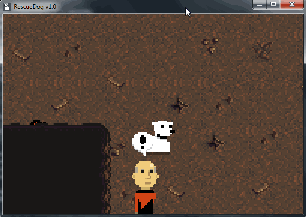
"play a bouncy, happy puppy trapped in a cave with your human companion. " - Author's description
Download on itch.io (Windows)
Stutter (Josh474)

"Stutter is a game about a short car ride after a first date. You battle a speech impediment and the social anxiety of a date." - Author's description
Download on itch.io (Windows)
SCREAM PAINT (XenosNS)

"Paint by SCREAMING!" - Author's description
Download on itch.io (Windows)
The Catacombs of Solaris (Ian MacLarty)

"The goal of the game is to find your favourite room in the catacombs." - Author's description
Download on itch.io (Windows, Mac, Linux)
Paramedium (Dinmoney, Jesika)

"What's more dangerous, the living or the dead? Spend the night as a Paramedium Cleric and see if you have what it takes to survive." - Author's description
Download on itch.io (Windows, Mac)
We Become What We Behold (Nicky Case)

"a game about news cycles, vicious cycles, infinite cycles" - Author's description
Play on itch.io (Browser)
Behind the Wallpaper (leafthief)

"A short point & click visual novel about a girl and her family hiding in a single room in times of turmoil." - Author's description
Download on itch.io (Windows)
Silent Crossing (Lycaon, Pesadilla Cuántica)

"A haunted town generator made for ProcJam 2016." - Author's description
Download on Itch.io (Windows, Mac, Linux)
Electric Love Bar (Nathalie Lawhead)

"The Electric Love Bar simulates love from the internet masses." - Author's description
Download on itch.io (Windows, Mac)
Animal Village (Rastek)

"Don't talk to the bird-headed man, don't acknowledge him and don't trust him." - Author's description
Download on itch.io (Windows)
Press to Date (Rubén Calles, Ludipe, Endlessnumber)

"tiny procedural card game about finding love" - Author's description
Play on itch.io (Browser)
Hello Charlotte EP1 (etherane)

"Dive deep into horrors of junk food, TV world, religion and romance novels for middle-age women. Keep your puppet safe at all times. Or don't." - Author's description
Download on itch.io (Windows)
See you later Jeanne (Gabrielle Barboteau, Michaël Morgan)

"A lo-fi text-based adventure game about Minitel's "messageries roses", erotic chatrooms animated by paid hostess during the 90's." - Author's description
Download on itch.io (Windows, Mac, Linux)
Coffin Counselling (Rose-Engine)

"Lord Dracula is depressed and ate his therapist. Now you have to step in and cheer up the inhabitants of his castle as the newly appointed therapist!" - Author's description
Play on itch.io (Browser)
Quur (Arthur Vilain, Thibaud Troalen, Héloïse Lozano, Typhaine Uro, Lucie Viatgé, Caroline Bitterly, Dante Medina)

"In a world sustained by a magical liquid, called the Color, you embody an ethereal being capable of manipulating it." - Author's description
Download on itch.io (Windows)
sleepthrough (Andrea Pignataro)

"I just lay here, in my bed, with my mind stuck by a fear I can't define." - Author's description
Download on itch.io (Windows)
Just Feel (Amélie Bailly, Florent Chardevel, Hugo Guillou, Athénaïs Jan, Laetitia Meyerferld, Lauren Quiniou, François Rivoire)

"In this experience the player personifies a caress metaphor." - Author's description
Download on itch.io (Windows)
#Everest (Team Dogpit)

"Plan out a trip, equipping climber and guides with all of the equipment they need to not die horribly while carrying as much awesome swag as possible to take the most share-worthy selfies along the way!" - Author's description
Download on itch.io (Windows)
Karambola (Agata Nawrot)

"In the middle of the summer, a pack of evil bird-thoughts attacked a peaceful village of emotional fruit people." - Author's description
Play on itch.io (Browser)
The Huntress of the Hollow (bleet)

"Lenora Calamint lives with her mother in a small village called Pokeweed Hollow on the outskirts of a forest." - Author's description
Download on itch.io (Windows)
Warp Door's Favorite Games of 2016 - Gnome

Warp Door has found and shared 768 games throughout 2016. That's a lot, and there's still plenty that we have missed and are slowly getting around to playing, in hopes of recommending them in the future.
We've been doing monthly round-ups to try to break that mass of games down further. Continuing that effort, as we're at the end of 2016, we've got our most frequent contributors to choose their favorite games that Warp Door covered over the past year.
You can see Gnome's picks in this article and navigate to the other selections using the links below:
p.s. unfortunately Tim was too busy over the holiday period to construct a list
t- e ni hтm-are of·`a c ty (Pol Clarissou)

"it is late and i am lost" - Author's description
Download on itch.io (Windows, Mac, Linux)
Kith - Tales from the Fractured Plateaus - Issue 1 (Screwy Lightbulb)

"Welcome to Issue 1 of a regular mini-adventure series with a focus on character and world building. In small chunks you will get to know the people and places of this world, and hopefully be charmed by their... charm." - Author's description
Download on itch.io (Windows, Linux)
Support the creation of the series on Patreon
Detectiveland (Robin Johnson)

"New Losago, 1929 - a town full of creeps, clowns, mobsters and, if you know where to look, the occasional honest citizen. Guide private investigator Lanson Rose through a series of puzzling cases: solve the city's liquor supply problem in Speakeasy Street, track down a missing food scientist in The Big Pickle, and investigate strange goings-on under a dilapidated mansion in A Study in Squid." - Author's description
Play it here (Browser)
Ancient Legends (8 Bit Weapon)

"You pack your things, take your family’s heirloom amulet for luck and enter the forest for adventure…" - Author's description
Download on Developer's Site (Apple II)
It is as if you were playing chess (Pippin Barr)

"You've always wanted to be a chess master! But you aren't one! Are you! Now you can at least look like one! Pretend you're playing chess! Make moves! Act like you feel things! Smirk! Frown! Weep! Chess!" - Author's description
Play it here (Browser)
Stair Quest (No More For Today)

"Stair Quest is a retro adventure game that pays homage to the most enchanting, pulse-pounding moments from the early King's Quest games." - Author's description
Download on GameJolt (Windows, Mac)
Nothing Can Stop Us (Daniele Giardini)

"A short dialogue-based kind-of-game about people, a hill, and old—but not necessarily good ol'—days." - Author's description
Play on Game Jolt (Browser)
Void Pyramid (Willy Elektrix)

"Void Pyramid is a post-apocalyptic RPG set in the spacefaring Egyptian empire." - Author's description
Download here (Windows)
Download here (Mac)
Download on Google Play (Android)
Download on the OUYA store (OUYA)
Superluminal Vagrant Twin (C.E.J. Pacian)

"A text-only space sim. Ply the spaceways. Make five million credits. Buy back your twin." - Author's description
Play on itch.io (Browser)
Infested (GrahfMetal, OFalconer)

"In INFESTED you must find your way through an infested space ship and discover a way to escape by using the resources and environment around you." - Author's description
Why play it? Because you have missed adventure games in the ICOM tradition and Infested is a truly great sci-fi homage to them.
Download on itch.io (Windows, Mac)
dungeon decorator (Loren Schmidt)

"dungeon decorator is an easy to use, web based tool for making games!" - Author's description
Play on itch.io (Browser)
Zen and the Art of Transhumanism (Deconstructeam)

"a cyberpunk pottery game about improving the human race through technology" - Author's description
Download on itch.io (Windows)
Download on Game Jolt (Windows)
Haunted Cities (Kitty Horrorshow)

"A free collection of three short, experimental games previously released as monthly rewards for Kitty Horrorshow's Patreon" - Author's description
Download on itch.io (Windows, Mac, Linux)
Norman's Sky (Ivan Notaros)
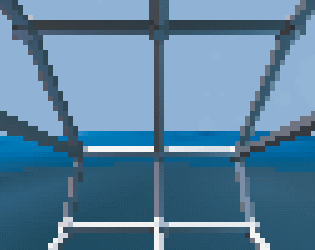
"Put on some [8bit] ambient music and explore the procedurally generated universe.." - Author's description
Download on itch.io (Windows, Mac, Linux)
From Darkness (Gold Extra)

"From Darkness is a research project by the Austrian artist group gold extra which covers the global interdependency of resources, conflicts and migration in the East of the continent. It’s a hybrid of fiction and reality, documentary and game, allowing the player to experience places, people and their story throughout Eastern Africa." - Author's description
Download it here (Windows, Mac, Linux)
The Narrated City (Gareth Damian Martin)

"The Narrated City is an experimental, procedural narrative that explores cities as fictional objects." - Author's description
Play on itch.io (Browser)
The Painted Lady (Bakir Kawham, Edu Verz, Adrian Castro, Quike Zarraga , Beícoli)

"This nogame is about a life in a room." - Author's description
Note: The Painted Lady is NSFW, and also deep, sad, and at times depressing.
Play it here (Browser)
Download source and soundtrack
Military Industrial Complex (REPVBLIC)

"Commander-in-Chief Strom Thurmond and the North Atlantic Protestant Alliance have been at war with Premier Stalintron’s endless cyborg army for almost four years with no end in sight." - Author's description
Download on itch.io (Windows, Mac, Linux)
Play on Game Jolt (Browser)
Cartas (Julian Palacios)

"Cartas is a short narrative game about the journey of a man adrift. It's based on a couple of letters that were written by inmigrants at the end of the 19th century in Argentina." - Author's description
Download on itch.io (Windows)
Main Course =Director's Cut= (Quantum Sheep)

"Uninebriated, a SoMorph is two foot tall, purple, with tentacles and a single, central eye. Its mouth can morph to eat any creature. It has eaten humans before. Absorbed their language and limited knowledge." - Author's description
Play it here (Windows, Mac, Browser)
How ‘Hotel Dusk: Room 215’ Inspired a New Investigation
Over the Christmas and New Year break, I caught up with a little reading. In Independent By Design—a book speaking to several small development studios and individuals who are making games a little differently (we ran some excerpts in 2016)—there's a Q&A with New Yorker writer and critic Simon Parkin.
"I must have been 16 or 17 when I started to think that there are people writing these games that I love playing," he recalls. "How did they start doing this? Who are they? Where do they live?"
Personally, in my teenage years, games were primarily playthings, brief distractions from college essay writing and driving lessons, alternatives to an evening sucking on a bottle in a nearby park with pals when money was tight. I don't think I began to consider the creators of these experiences until the final years of the PlayStation 2 era, and the beginning of generation seven: Hideo Kojima's Metal Gear Solid sequels, Fumito Ueda's pairing of Ico and Shadow of the Colossus, and distinctive works from the likes of Goichi Suda and Keita Takahashi.
Not that I was necessarily playing everything these talents put out, at the time they came out; but I was reading, absorbing, making a multitude of mental notes—and eventually, I'd visit all of these singularly styled virtual worlds.
To this day, when I play a video game that tickles me in a way I wasn't anticipating, that offers something fresh, I immediately click to Wikipedia: who is behind this marvelous thing, and how do I get more of it? The most recent example of this process, from perusal to play to about-to-pay-for-more is Hotel Dusk: Room 215, a game coincidentally celebrating its tenth anniversary in January 2017.
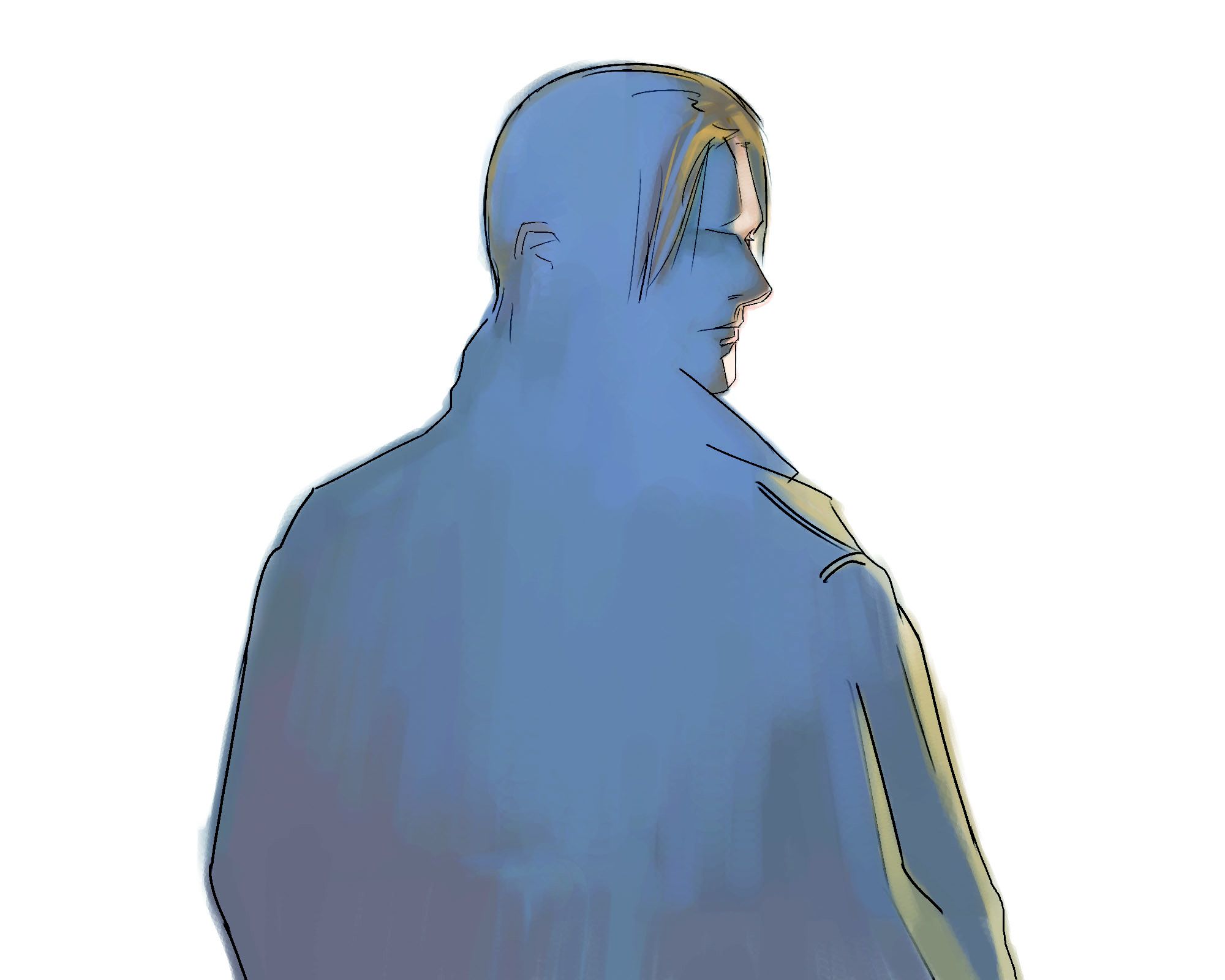
Header and all Hotel Dusk: Room 215 images courtesy of Nintendo
When I got my 3DS a few years back, I didn't envisage using it so frequently as a device for older DS titles. But, here we are: slotted into it as I type is Ghost Trick, which I've finally started this year, and I've previously enjoyed Aliens Infestation, Elite Beat Agents, Grand Theft Auto: Chinatown Wars and many more releases for Nintendo's handheld-before-this-one.
It's thanks to sometime Waypoint/VICE contributor Chris Scullion's excellent list of indispensable DS games, published on his blog in March 2015, that I added Hotel Dusk to that list. And why I've since been searching for information on both the games that preceded it, and what followed.
Hotel Dusk is a point-and-click affair in which you, as former police detective turned traveling salesman Kyle Hyde (a name that, throughout the game's 15 hours, constantly had "Born Slippy" rolling around my head), find yourself at a backwater California hotel at the beginning of a single, highly eventful night between Christmas and New Year, 1979.
The game takes place entirely within the walls of the hotel, Hyde constantly conversing with both the staff and fellow guests. There's a lot of backtracking as new leads present themselves, and sometimes overcoming problem-solving plotline obstacles can be infuriatingly obtuse. Often, there's a very particular way to combine elements or objects, or very specific ways to conduct lines of inquiry; and even when you know what you want to happen, achieving that result with the game's acquired taste UI isn't the easiest thing. "Classic" point and click, then, albeit mercifully with no actual red herrings.
Article continues after the video below
- - -
Watch Waypoint's short documentary on the making of 'SuperHyperCube'
- - -
Ostensibly, Hyde is here to seek information on a vanished ex-partner from his force days; but the complex lives of Dusk's temporary residents repeatedly fork his path onto new, unexpected directions. And yet, in the end, everything (sort of) ties together—it turns out that the assortment of strangers bedding down under the same roof have secret pasts that connect in all manner of curious ways. Some paint, some plagiarize; others potter around the place seemingly with no purpose whatsoever, only to prove valuable pieces in a significantly grander puzzle.
Midway through the game—which, with schools-off family time taking up most of my waking hours, became my go-to bedtime entertainment for late December, perfectly suited as it is to bite-size sessions—I found my curiosity piqued beyond the confines of the fictional hotel. I sought out the makers of this peculiar adventure—a game that, until Chris's article, I'd never heard of, but now I'd sunk more time into than most triple-A big-hitters of 2016.
(Brief aside: I also "enjoyed" how Hotel Dusk presented an unlikely parallel to my attempts to maintain a household. I always have a dozen and more jobs to do; but often, when I'm close to getting started on one of them, something else happens, which requires urgent attention. So, I'll want to decorate a bedroom, or finally sort out these sagging record shelves; but then a fence will blow down, or the shower explodes (which it did, right before Christmas).
Hyde wants to chase down his partner, long term; but hallway conversations keep leading him towards into more pressing problems. The seemingly small, insignificant gesture of returning a mislaid jigsaw piece ultimately results in a sub-plot about a missing mother—who, wouldn't you know it, is mixed up in wider happenings in the hotel's rather shady history. So every time our hero sighed, cursed, and then got on with something other than what he really came here to do, I could totally relate.)
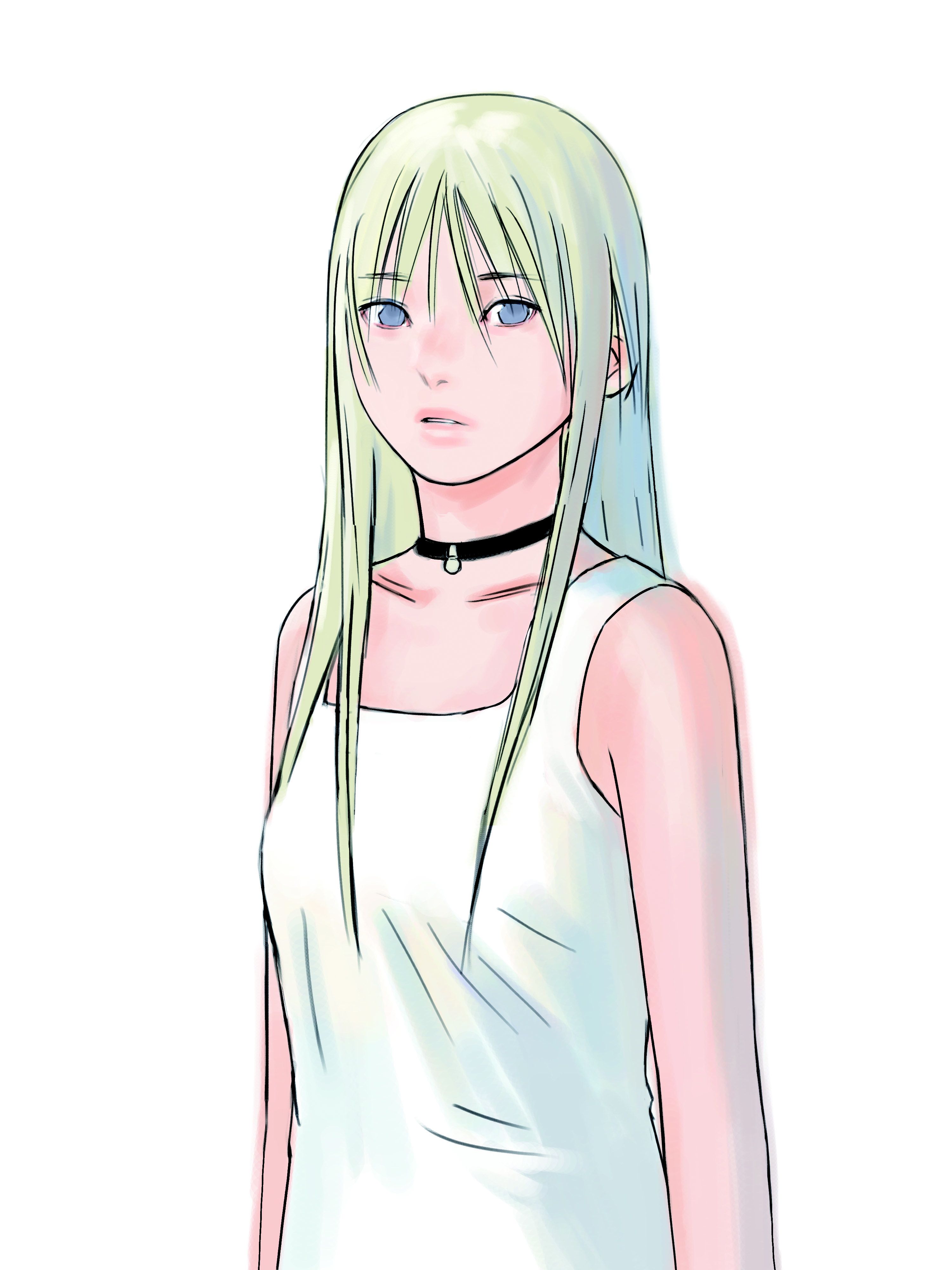
Hotel Dusk: Room 215 image courtesy of Nintendo
The developers, Fukuoka-based studio Cing Inc., went out of business in early 2010. They'd made games exclusively for Nintendo platforms since a solitary PS2 title in 2003, across the DS and Wii platforms. Suffice to say I wasn't about to discover an unappreciated gem along comparable lines for either of Nintendo's contemporary consoles.
So then I go one level deeper: from the corporation to the individuals themselves. That's something we, as people who love video games and want them as appreciated as any other media, probably don't do enough, not to the extent we do film directors, songwriters, novelists. We should more regularly ask ourselves the questions Parkin posed himself as a teenager: who are these people, and where are they, today? And we should look beyond the usual suspects.
Hotel Dusk was designed by Rika Suzuki, and directed by Taisuke Kanasaki—neither names that will likely resonate widely with the gaming public, in the manner of the aforementioned Kojima et al, or even someone like David Cage, or prolific indie creators like Rami Ismail or Lucas Pope. A little Googling and it turns out that Suzuki, after working on Dusk sequel Last Window: The Secret of Cape West, moved into online novels and then the Japanese-only (from the look of things) mobile RPG Black Rose Suspects.
Kanasaki, meanwhile, returned to the world of detective games in 2016 with Chase: Cold Case Investigations – Distant Memories for the 3DS. It has a hand-drawn aesthetic similar to Hotel Dusk— Chase star Shonosuke Nanase is a shameless ringer for Hyde—and while reviews are mixed (just as they were for Dusk) I'll probably be picking it up soon.
The same goes for Last Window, although it sells for a pretty penny, even second-hand, in the UK, making it more of birthday list addition than imminent acquisition. Meaning that my first "new" purchase after finishing Hotel Dusk will be the cheaper Another Code: Two Memories, a 2005 Cing Inc. title featuring the same director and designer pairing, and a comparable twin-screen interface split between top-down movement and close-up interactions.
It's an honorary mention on Scullion's list, an entry I'd not noticed until today. The words are few, but they say enough: "Before Cing made Hotel Dusk and Last Window, it released this lovely wee game about a young girl searching for the dad she thought was dead." Consider my money as good as spent.

Hotel Dusk: Room 215 image courtesy of Nintendo
I'd never have discovered this new seam of portable games had it not been for a recommendation followed and then my own intrigue into the people behind a (now) ten-years-old title. It's not like Hotel Dusk is an undiscovered diamond of the DS catalogue—it's appeared in many a list of underrated games for the system, and I've seen online commenters express their affection for Kyle Hyde, and their wishes to see him in a third adventure.
But Another Code and Cold Case Investigations are firmly in that Metacritic Yellow Band, if you know what I mean: games I'd have never looked at, with my own money on the line, had I not already established a precedent for probably enjoying them.
Not long after the time of his realization that Real People made the games that he loved so much, Parkin took time out from college in London to hang around outside Squaresoft's UK office, in the English capital's central Golden Square. "I decided to go there to have a look and see if I could see some of the people making Final Fantasy," he told Independent By Design. "Obviously, none of them were there, they were all 10,000 miles away."
Today, exploring beyond the credits of a favorite game, to see what else these creators have put their time and talent into, is more a case of mouse clicks than metro travelcards. It's something we should all do, because your next favorite game could well be a short virtual paper trail away, hidden from the spotlights of big sites and sales charts, but special nonetheless.
Cat that jumped out of car on Upper Deck found safe nine days later - atop a girder above the Lower Deck
Taylor SwiftIM NOT CRYING IT'S JUST DUSTY IN THESE GIRDERS
Electricians with Juno. Photo via Erin McCutcheon.
A cat that jumped out of a car on the upper deck of I-93 near Boston Sand and Gravel on Christmas day spent nine days in the pipework underneath it before she was rescued by electricians doing maintenance work yesterday.
One of Juno's owners, Erin McCutcheon of Roslindale, reports Juno was at first reluctant to come down when the Local 103 electricians spotted her. But the enterprising electricians managed to get some cans of cat food somewhere and were able to lure the starving kitty down.
McCutcheon never gave up hope that Juno survived the jump out of a car on a busy highway. The electricians knew whose cat Juno was because of the fliers McCutcheon had posted all over the area under the highway.
Today, she's awaiting her rendezvous with her pet - who spent the night eating and recuperating with Jay Frazier, one of the electricians.
She describes the area where the workers found Juno:
There is a turn-off zone reserved for city/state workers in that spot, with some equipment on it that we had seen before, but it was too dangerous for us to go into on our own. We had called the highway department prior to this, and they told us they did a sweep of the area - but they wouldn't have known to look up on the ceiling in the pipes, and might not even have seen her if they weren't physically up there.
She is safely at home with Jay right now and appears uninjured, but obviously dehydrated and hungry after being up there for so long. We are so incredibly overwhelmed with happiness that she has been found, and with gratitude for Jay and his co-workers for rescuing her. As well as everyone else who has given their time, assistance, and moral support to keep us going. I knew if any cat could survive such a horrible ordeal, it would be Juno.
Chucklefish Shows Off Strategy Game Inspired by Advance Wars
Taylor Swift*arches eyebrow*
 Victor the Loser is a controller, and a poor sport. If it seems like you're going to win, Victor starts to interfere, waving flags in front of the screen and locking down buttons. ...
Victor the Loser is a controller, and a poor sport. If it seems like you're going to win, Victor starts to interfere, waving flags in front of the screen and locking down buttons. ...
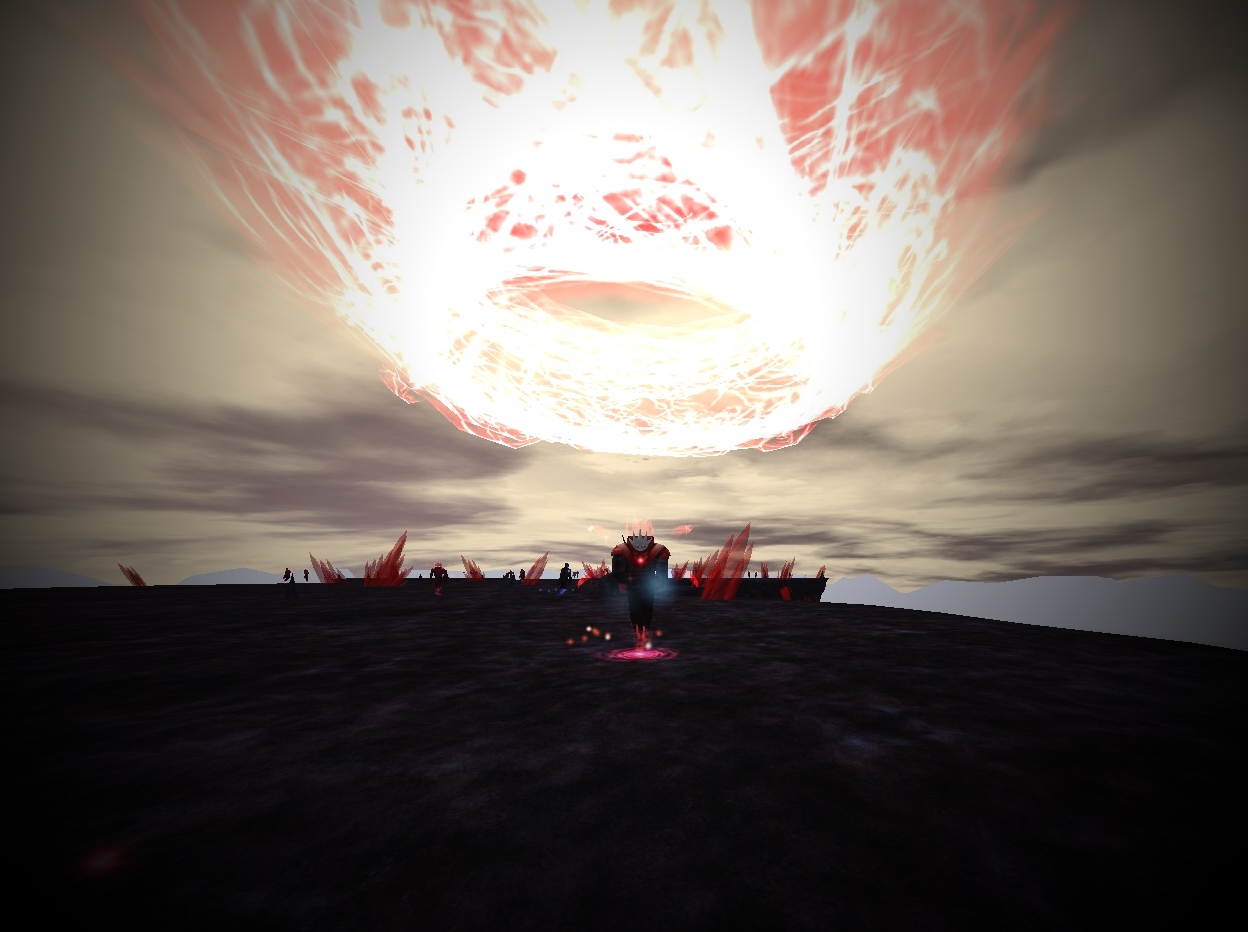







 Security expert Brian Krebs reports the author of the "Internet-breaking" Mirai DDoS botnet malware -- and indeed, the business of conducting DDoS attacks in general -- is intertwined with Minecraft. ...
Security expert Brian Krebs reports the author of the "Internet-breaking" Mirai DDoS botnet malware -- and indeed, the business of conducting DDoS attacks in general -- is intertwined with Minecraft. ...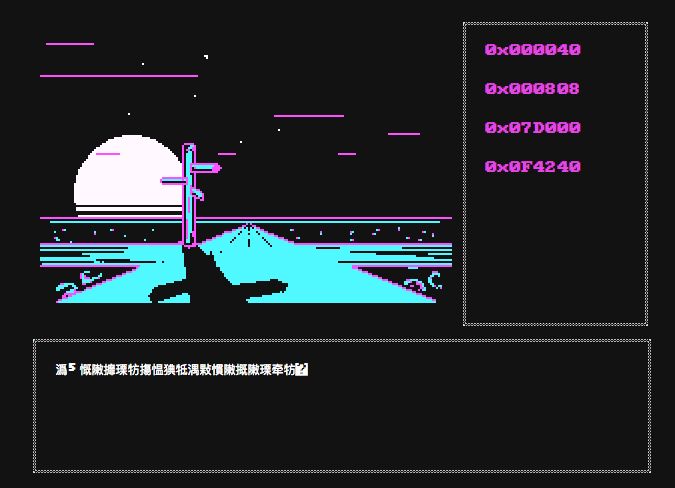
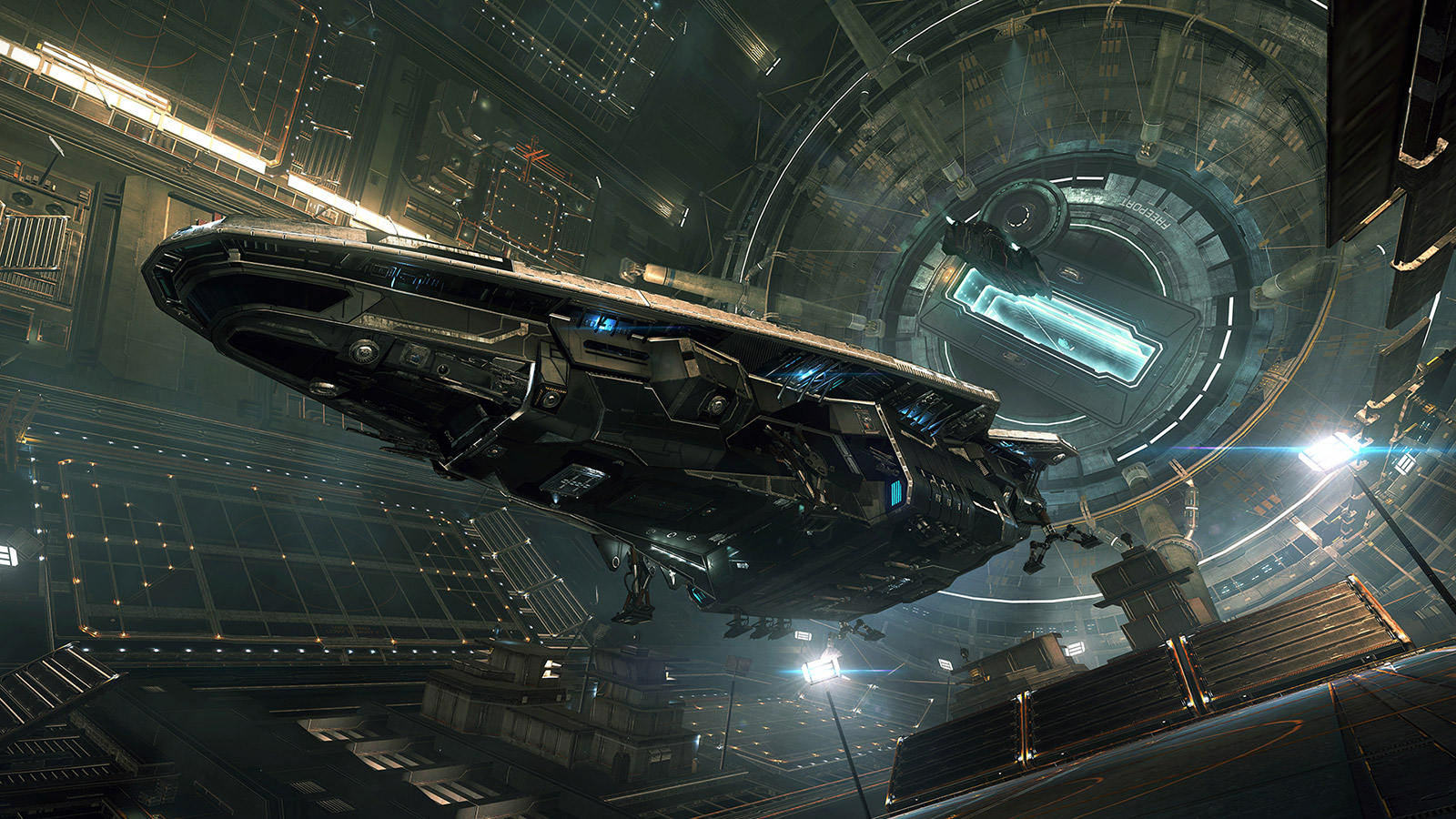
 After two years of work and interviews with over thirty people, Polygon has published a massive feature that documents the inception, development, and impact of Final Fantasy VII. ...
After two years of work and interviews with over thirty people, Polygon has published a massive feature that documents the inception, development, and impact of Final Fantasy VII. ...